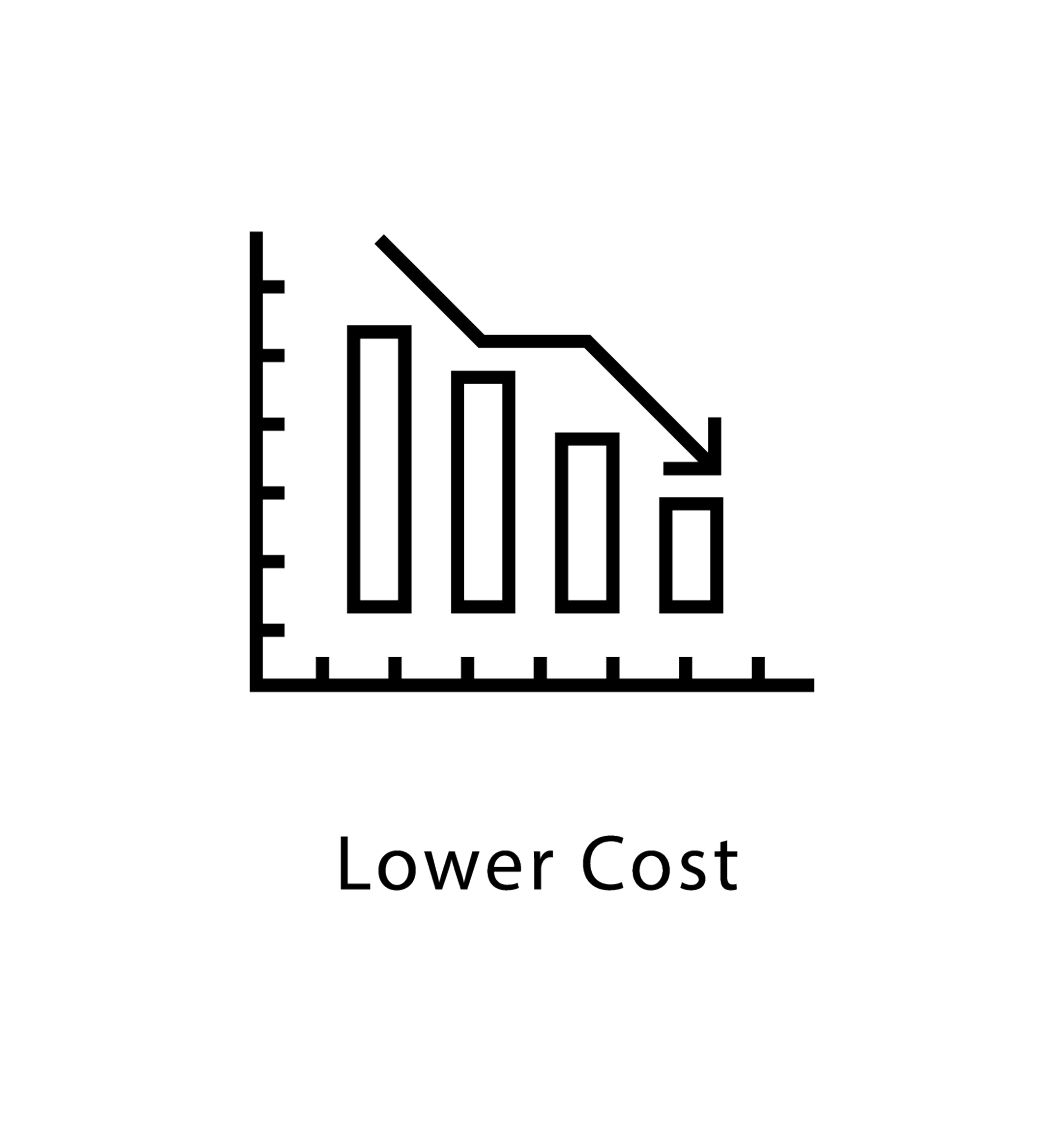
MEDICARE ADVANTAGE PLANS
As an alternative to Original Medicare PPO, then President Bill Clinton signed into law the Medicare+Choice bill into law in 1997. It was later re-named Medicare Advantage in 2003.
Why 'upset the apple cart' if Original Medicare is working?
Facing rapidly rising Medicare costs and an interest in leveraging the private sector operations, the point of the program change had two main goals:
- reduce overall costs of delivering Medicare
- get rid of operational responsibility by using the growing ‘managed care’= HMO model which all the expertise for operations is within the private insurance carriers
It failed on one of these goals. I’ll let you guess which one.
But here’s a hint..there was lots of offloading, and not a lot of …$$ savings to the Medicare program bottom line.
So why consider enrolling in a Medicare Advantage plan? Let’s get to it.
Here’s some quick links to topic sections if you want to jump ahead to any section:
Lower Monthly Premiums
We all love saving money, am I right? You sitting down?
Medicare Advantage plan premiums are often between $0-$25!!
Even the expensive plans usually only reach the $75-$100 monthly premium range.
How can they do this? Especially hard to understand in the face of the last decade of rising medical expense and health insurance premiums?
Contracts, contracts, contracts! Much of the value of the insurance carrier is the contracted, or negotiated rate for services the insurance carrier provides its members.
You save typically between 20%-60% in negotiated rates when visiting ‘in-network’ providers.
Why do the doctors and hospitals agree to the lower rates for their services?
The insurance carrier leverage is the size of the membership. A large insurance carrier, such as Anthem Blue Cross of California has almost 10 million members.
Anthem Blue Cross can tell a doctor or hospital they will be bringing those huge numbers of members to the table seeking medical services from their ‘in-network’ providers.
For one, the insurance carriers enter into a contract with the local doctors and hospitals for delivering services so costs for various medical expense types are agreed upon ahead of time, or fixed.

Next, the premium cost is held low because the trade off is the member assumes more risk for actual medical expenses when you have them. You cost share with the insurance carrier up until an annual out of pocket maximum. As recent data has shown in 2016 the average out of pocket annual risk is $5460 on Medicare Advantage plans.
Remember, on Original Medicare A+B + Supplement your deductibles, coinsurance, and co-pays are often covered for you.
Also, the insurance carriers most often use the HMO model for Medicare Advantage plans which controls the treatment methods and decisions with the goal of providing efficient care at a low price.
HMO= You give up some control of your medical treatment decisions.
But, the better philosophy here is: why give the insurance carrier the money every month in premium, if you’re willing to assume the max out of pocket risk on the plan? Paying the higher monthly premiums you automatically lose the money.
Why would you buy a Medicare Advantage plan? Here’s a few reasons people do below.

Fixed-Out-of-Pocket-Cost
One of the things people don’t like about the American medical system is the fear of an unknown medical bill.
But, with Medicare Advantage plans you eliminate the guesswork.
Why, because Medicare Advantage plans work very similar to a plan you’ve been on previously under age 65. Phases of coverage on medical bills:
- deductible
- co-insurance percentage
- annual out of pocket maximum
Although you may end up with more out of pocket on a large medical expense, the total risk amount per year is stated so up front you know the worst case scenario bill.
For example, let’s say you are enrolled on a Medicare Advantage plan contracted with your favorite local medical group and primary care doctor and you have hip surgery.
The total cost example might look like this with a Medicare Advantage plan:
|
Medical Expense Type |
Medicare Advantage Plan Pays |
You Pay |
Total Cost |
|
Part A Hospital Deductible |
100% After Co-Pays |
$0 Deductible |
$0 |
|
Hospital Facility Fee |
100% After Co-Pays |
$285 per day, 7 Day Max |
$285 |
|
Hospital Outpatient Surgery Co-Pay |
100% After Co-Pays |
$250 Co-Pay |
$250 |
|
Outpatient Rehab/Physical Therapy 7 visits |
100% after Co-Pays |
$30 co-pay per visit |
$210 |
Add ’em up and you get: $745 total cost out of pocket. See below detailed breakdown:
$0 Deductible: This means the plan helps you with the first dollar of out of pocket expense.
Hospital facility fee: $285 co-pays for 7 days maximum. $0 co-pays per day thereafter
Hospital outpatient surgery fee: $250
Outpatient Rehab /Physical Therapy: 7 visits, $30 co-pay per visit
So, you can see where this could be attractive. If you had the surgery on an outpatient basis you would pay totaled up:
$285 Hospital fee
$250 Outpatient surgery co-pay
7 * $30= $210 rehab visits equals total:
$745 total cost out of pocket
This particular plan example, which is a real Medicare Advantage plan offered by Kaiser Permanente, also contains an annual out of pocket maximum of $6700. The benefit here is you know what the most likey cost and the dollar stop loss.
You will still have to pay for Medicare Part B premiums separate from your Medicare Advantage plan premium.
To see pricing now:
Single Place to get medical care
“If you like your doctor, you can keep your doctor..” Can’t remember who said this exactly.
On HMO Medicare Advantage plans you elect a primary care doctor and medical group, which in turn contract with a local hospital. Ask YOUR doctor if they accept any Medicare Advantage plans.
We can help with this too! Give us a call at 1-866-486-6551 and we’ll help you identify if your doctors or medical group accepts a Medicare Advantage plan from any insurance carrier.
But, if you happen to have your doctors mostly in one medical group and receive all your medical treatment from one place anyway, these plans could be a great fit for you provided the medical group has a Medicare Advantage contract.

Like one stop shopping?
When utilizing a single medical group on a Medicare Advantage plan, all your medical records are contained within the medical group and referrals toe specialists are kept inside the group as well.
If you are enrolled on a Medicare Supplement plan you can switch to a Medicare Advantage plan, but if unhappy you may not be able to get back to Original Medicare based on your health condition.
Part D Prescription drugs included
Additional Plan Benefits
Medicare Advantage plans now have the option of including additional coverage which don’t come with Original Medicare. This was NOT the case prior to 2019.
Medicare now allows many benefits added to Medicare Advantage plans to help Seniors with overall health and services.
Previously available ‘optional’ benefits before 2019:

Dentist
Original Medicare A+B & Supplement does contain some dental benefits, unfortunately usually only if you sustain a jaw fracture or similar and it requires reconstructive type surgery for treatment.
That is not an easy way to get your routine dental care covered.
Medicare Advantage plans can help you with routine care such as:
- cleanings
- x-rays
- exams
- fillings
- root canals
- crowns
To request additional dental plan info please contact us here. Or call 1-866-486-6551.
Vision
At this point in your life let’s face it, glasses or contacts are essential!
Gym Memberships- Many Medicare Advantage plans bundle gym membership & exercise programs, such as Silver Sneakers.
These programs offer great value add and are really popular!
Silver Sneakers via Medicare Advantage allows services like:
- Gym Membership access to over 17000 fitness centers
- On Demand Online Video Workouts
- Mobile Fitness App for Tracking
- Exercise Classes designed specifically for Seniors
Want to know the best part? They are included with participating Medicare Advantage plans.


Newly available starting in 2019!
Hearing Exams and Hearing Aids
Does Medicare cover hearing aids? We get this question all the time. Here’s a quick overview of hearing & hearing aid coverage:
First off, let’s get this out of the way. Orignal Medicare A+B does not cover hearing aids.
Fall Medicare Open Enrollment
Medicare Part B may cover a hearing test for diagnostic purposes if it’s considered medically necessary.
Medicare Advantage Part C may choose to include hearing coverage containing beneftis for the following types of expenses (but not limited to):
- Hearing Exam
- Hearing Aids
- Hearing Aid Consultation and Fitting
- Hearing Aid Maintenance
Coverage on the various expenses could vary greatly. You could pay as little as a flat office visit co-pay for an exam. Or, for a hearing aid the plan may include an ‘allowance’ paid up to a limit.
Deductibles and Coinsurance may apply of course. Different plans may pay different limits for specific hearing aid types and models.
So, if hearing is going to be a medical need you’ll want to shop this coverage very closely.
The most expensive hearing aids cost up to $6,000 a piece.
For example, the Anthem Blue Cross Mediblue Medicare Advantage plan offers $0 co-pay for hearing exam and even $0 for hearing aid, but a limit of $3,000 in expense. After Anthem Blue Cross pays $3,000 you are responsible for the rest of the bill.
If you’re a Veteran take note: Veterans also may be eligible for financial help with hearing aids through the Veteran’s Affairs Department= VA.
What about hearing coverage in Original Medicare A&B+ Supplement?
Since 2019 Medicare Supplement plans are also allowed to add coverage for Hearing exams + Hearing Aids in the Medicare Supplement F & now added to the G Supplement plan. Original Medicare A+B does not include this coverage.
A good example is the 2019 Blue Shield of CA Medicare Supplement G Extras plan which now includes hearing benefits.
Here’s the specifics:
Blue Shield provides hearing coverage through EPIC Hearing Healthcare EPIC.
The coverage is designed to be used via the EPIC network hearing providers only, so if you choose a non-contracted doctor or hearing aid then you have to pay the whole bill.
Hearing Examination Visit Costs (Every 12 months)
|
Medicare Pays |
G Extras Supplement Pays |
You Pay |
|
$0 |
100% |
$0 |
Hearing Aid Cost (EPIC Vista 610 models only)
|
Medicare Pays |
Supplement Pays |
You Pay |
|
$0 |
$0 |
$499 per aid |
If you are enrolled on a Medicare Supplement plan you can switch to a Medicare Advantage plan, but if unhappy you may not be able to get back to Original Medicare based on your health condition.
What other types of Medicare Advantage plans are there?
Beyond the mainstream HMO Medicare Advantage plans the government allowed the private health insurance carriers to offer different kinds of Medicare Advantage plans.
Most folks enroll in the Medicare Advantage HMO plan because the idea is to save money under the HMO managed care model: single medical group, a contracted local hospital, and an assigned primary care doctor within the medical group.
But, there are actually several different kinds of Medicare Advantage plans!
Good luck finding them though. Most insurance carriers offer just the Medicare Advantage HMO Plans + possibly a PPO plan. Here’s the different types of possible Medicare Advantage plans (but not necessarily available in your area).
HMO= Health Maintenance Organization “Managed Care” Model built on requiring a Primary Care Physician and visiting doctora in the network & medical group only.
PPO= Preferred Provider Organization A contracted network of doctors, hospitals, providers etc.. who agree to accept the payment contract terms. Plan also pays out of network expenses but you pay more out of pocket. PPO’s typically come with a higher premium.
Private Fee for Service (PFFS)= Similar to a PPO plan, but not exactly.
- Insurance carrier, not Medicare determines how much it will pay for a medical claim, and how much the member pays out of pocket.
- Providers agree to the amounts a the time of service and can choose a basis to cover by the patient or even the type of medical service itself.
- There may, or may NOT be a contracted provider network.
Medicare Advantage Special Needs Plans
Dual Special Needs: Serves those who are both Medicare eligible for the health plan, but also the financial + health assistance available for the poor via federal Medicaid
Chronic Special Needs: Helps people with one or multiple chronic or major debilitating health conditions such as: cancer, hiv/aids, auto immune diseases, organ failures, etc.
I/SNP= Institutional Special Needs Plan: Assists those who are institutionalized or need nursing care at home.
MSA= Medicare Savings Account Medicare Advantage plans allow for the creation of compatible Medical Savings Account plan usage. There are two parts to the MSA strategy:
- The MSA compatible high deductible health insurance Medicare Advantage plan
- The MSA Medical Savings investment account itself, which is separate and maintained at a financial institution.
The “MSA Account” allows you to contribute funds annual on a ‘tax deductible’ basis to be used for Qualified Medical Expenses such as:
- Medical Costs towards the health plan deductible
- Dental care
- Vision costs
What about End Stage Renal disease (ESRD)? Can you enroll in Medicare Advantage if you have kidney failure or are on dialysis? Is it an automatic disqualification?
Medicare Advantage plans do not allow people with End Stage Renal Disease to enroll in a typical case unless one of the qualifying scenarios applies. Some examples of qualifying examples where enrollment is allowed are:
- currently enrolled in a Medicare Advantage plan which leaves the market
- enrolled on a group Medicare Advantage plan
- develops End Stage Renal Disease after you’re enrolled in a Medicare Advantage plan
Medicare Advantage plans are allowed to refuse existing patients with ESRD, otherwise known as kidney failure, due to a clause in very old legislation dating back decades. ESRD, or people on dialysis/ kidney failure patients must enroll in Original Medicare as their path which works fine.
This was done to control the costs of Medicare Advantage when it was initially launched, so the program would have a higher chance at success.
The ban on individuals with kidney failure enrolling in Medicare Advantage plans ends in 2021 due to the 21st Century Cures Act (Cures Act). Monthly premium rates are expected to go up about $18 in premiums over a 5 year period, which is a 75% increase on average.
To get more help call us at 1-866-486-6551 or email help@plansforhealth.com.
Instant quotes can be run here:



